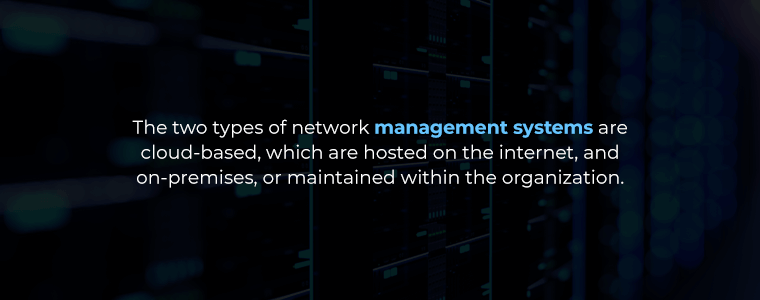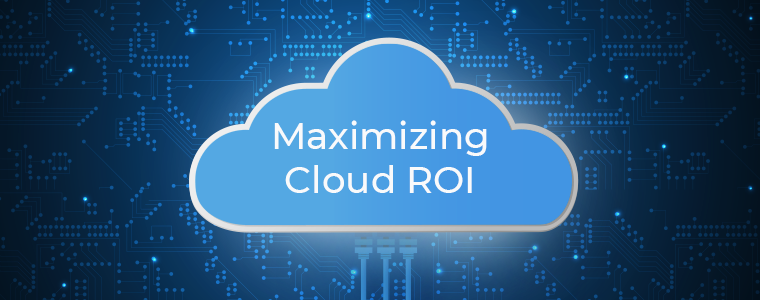What Is Network Management?
Your financial services business relies on an integrated computer network to conduct day-to-day operations. A network management system is vital for monitoring and controlling the network’s hardware and software and ensuring their productive operation.
Network management encompasses the following:
- Administration: Tracking network resources, performance monitoring, and software updates.
- Provisioning: Configuring network resources to support specific services.
- Operation: Ensuring all network and system components function correctly.
- Maintenance: Implementing upgrades and fixes and replacing gear as necessary.
- Security: Installing security updates and taking proactive steps to prevent data breaches.
How Do Network Elements Send Data to the System?
Networks can consist of numerous components like computers, cameras, smartphones, and a series of routers and switches. These elements transmit data in one of two ways:
- Telemetry: This method relies on a software agent that facilitates real-time transmission of keep performance indicators.
- SNMP: Simple Network Management Protocol (SNMP) polls each network element and delivers a response to the system.
Cloud-Based vs. On-Premises Systems
The two types of network management systems are cloud-based, which are hosted on the internet, and on-premises, or maintained within the organization. Each system has unique benefits for your business.

Cloud-Based Pros
- Low startup costs
- More flexibility
- Enhanced IT agility
Cloud-Based Cons
- Occasional performance issues
- Increased security risks
On-Premises System Pros
- Better security across large campuses
- Increased data security from on-site storage
On-Premises System Cons
- Additional connection requirements
- Resource-intensive setup
Network Management System Characteristics
As network management systems evolve, automation plays a more significant role. The result is increased control over repetitive processes and functions, reducing the burden on IT personnel. Network assurance can identify equipment errors that impede performance. The widespread use of analytics enables functional decisions by comparing data with preprogrammed operational models.

Why Is Network Management Important?
Computer systems and technologies in financial services organizations are increasingly complex, and the digitalization of data is now a standard operating procedure. Efficient network management protocols are crucial for ensuring systems stay current and can handle a broad range of tasks.
With the steady onslaught of cyberattacks, it’s imperative that IT professionals monitor and manage their networks closely to protect client data and prevent potentially devastating breaches.
Learn About Agio’s Network Management Services
Do you still have questions about what network management is and why it matters to your business? Learn about our network management services.
Share post
Featured Posts
Connect with us.
Need a solution? Want to partner with us? Please complete the fields below to connect with a member of our team.



